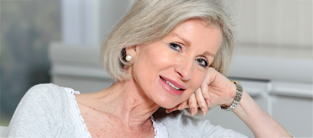Maeve’s Story

My family had never experienced something as devastating as when my mother-in-
law, Maeve, was diagnosed with dementia very shortly after having a heart attack
and two minor brain bleeds. She was always a very independent and sociable
woman and suddenly she was not allowed to return from hospital to her own home.
We had considered calling in home care so that she could continue living
independently but she was now beyond that stage. Finding a suitable nursing home
in Geelong became so urgent right at a time that we were all trying to come to terms
with the deterioration in the health of a woman that we loved so much. We knew that
we couldn’t cope with the stress and emotion of evaluating aged care homes without
help from professional aged care consultants, agent or advisor.
Twin Ways Aged Care Consultants were recommended to us through someone who
had been through a similar experience and had sought aged care advice and
assistance with aged care placement. The health authorities recommended a
transitional nursing home placement until we could find an appropriate secure aged
care facility. Maeve tended to wander, because she was in an unfamiliar
environment, so we absolutely had to find her secure permanent care. Twin Ways
treated Maeve’s situation with respect and sensitivity.
At times like this, there can be disagreement amongst family members but Twin
Ways involved the whole family throughout the process of short listing aged care
homes that suited Maeve’s financial position, health care needs, and in a location
where all family members had easy access for visits. Trying to understand the
financial planning at the same time as being focussed on Maeve’s care needs was
something that we couldn’t cope with without the help from independent aged care
consultants. We were already run off our feet with taking control under Power of
Attorney, having to sell Maeve’s unit, and dealing with her laundry and other care
needs.
Twin Ways did everything for us from finding a placement solution, after several
inspections of facilities in the area and checking everything against comprehensive
checklists, including evaluation of costs, vacancies, suitability, security, care options,
checking of menus and food quality, to completing all of the complicated forms,
negotiating the final costs and, at the same time, acting as independent advisors and
mediators. As a family, we were able to come to an agreement on Maeve’s future
accommodation and care. They took so much pressure off us.
Maeve was moved into a wonderful, very caring home, within two weeks of us
accepting Twin Ways’ quote but they didn’t desert us at that point. They continued to
check in with us right through Maeve’s settling in period to make sure that everything
was to our expectations. Even though Twin Ways is an aged care consultancy based
in the eastern suburbs of Melbourne (Kew), they were more than happy to travel to
Geelong to ensure our final choice was the correct one.
Christine, Geelong

